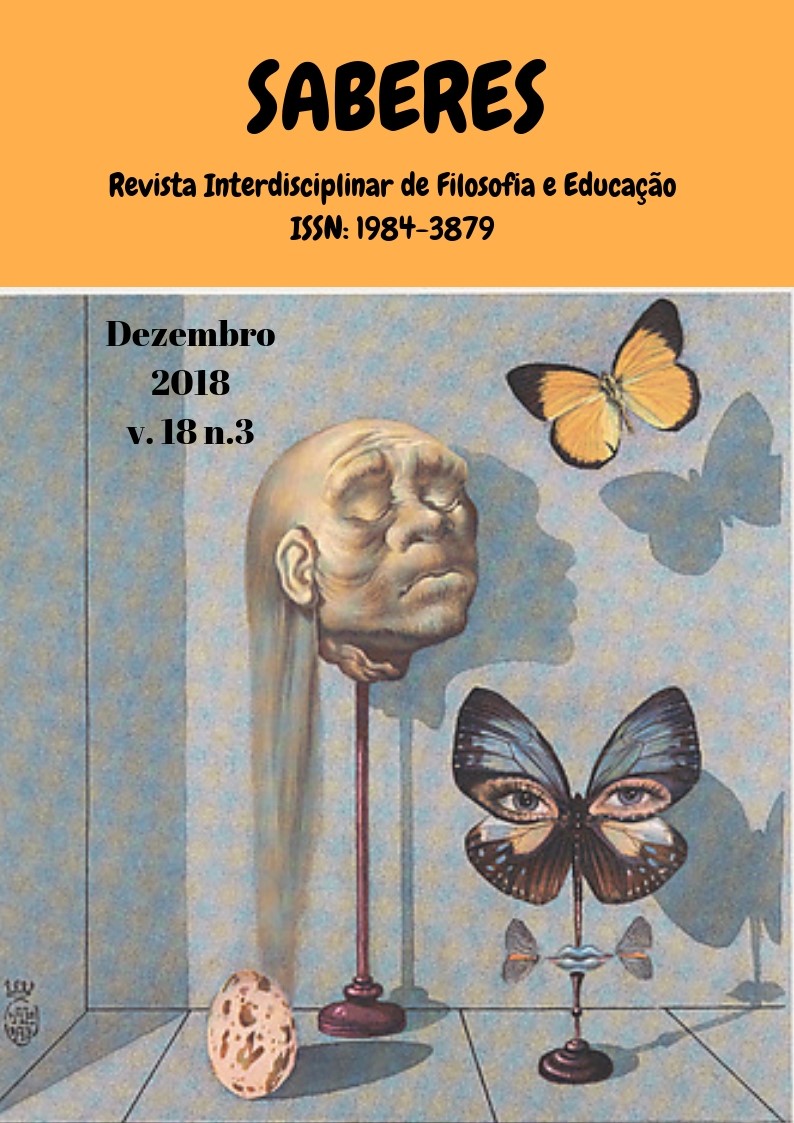DO ENSINO DE FILOSOFIA AO FILOSOFAR
REFLEXÕES SOBRE O CONCEITO DE AÇÃO EM HANNAH ARENDT
DOI:
https://doi.org/10.21680/1984-3879.2018v18n3ID15776Resumo
O objetivo deste artigo é discutir aspectos do ensino da filosofia na educação básica à luz do conceito de ação firmado no capítulo V de A Condição Humana de Hannah Arendt, identificado na revelação do agente através do discurso e da ação. Sugerimos a reflexão do conceito de ação como consciência motivadora para o ensino de filosofia, investindo em políticas educacionais que consideram a diversidade como um elemento favorável para a construção do conhecimento entre professores e alunos. Estamos aqui em um movimento adverso às práticas tecnicistas que investem em experiências estéreis, fadadas ao mecanicismo das relações. Pois acreditamos que ensinar filosofia além de ser um constante convite à reflexão é também um estímulo à liberdade humana que pode ser impulsionada pela engenhosidade de práticas docentes mais estimulantes. Com base em atividades vivenciadas durante as aulas de filosofia na educação básica, apresentamos aqui algumas reflexões a favor da pluralidade no espaço semipúblico favorecendo perspectivas do ensino da filosofia ao filosofar na sala de aula.
Downloads
Downloads
Publicado
Como Citar
Edição
Seção
Licença
Copyright (c) 2018 Saberes: Revista interdisciplinar de Filosofia e Educação

Este trabalho está licenciado sob uma licença Creative Commons Attribution-NonCommercial-ShareAlike 4.0 International License.
Este obra está licenciado com uma Licença Creative Commons Atribuição 4.0 Internacional.
Autores que publicam nesta revista concordam com os seguintes termos:
a. Autores mantém os direitos autorais e concedem à revista o direito de primeira publicação, com o trabalho simultaneamente licenciado sob a Licença Creative Commons Attribution 4.0 que permite o compartilhamento do trabalho com reconhecimento da autoria e publicação inicial nesta revista.
b. Autores têm autorização para assumir contratos adicionais separadamente, para distribuição não-exclusiva da versão do trabalho publicada nesta revista (ex.: publicar em repositório institucional ou como capítulo de livro), com reconhecimento de autoria e publicação inicial nesta revista.
c. Autores têm permissão para publicar e distribuir seu trabalho online (ex.: em repositórios institucionais ou na sua página pessoal) após a publicação inicial nesta revista, já que isso pode gerar alterações produtivas, bem como aumentar o impacto e a citação do trabalho publicado (Veja O Efeito do Acesso Livre).
Foram feitos todos os esforços para identificar e creditar os detentores de direitos sobre as imagens publicadas. Se tem direitos sobre alguma destas imagens e não foi corretamente identificado, por favor, entre em contato com a revista Saberes e publicaremos a correção num dos próximos números.


 English
English Español (España)
Español (España) Português (Brasil)
Português (Brasil)



